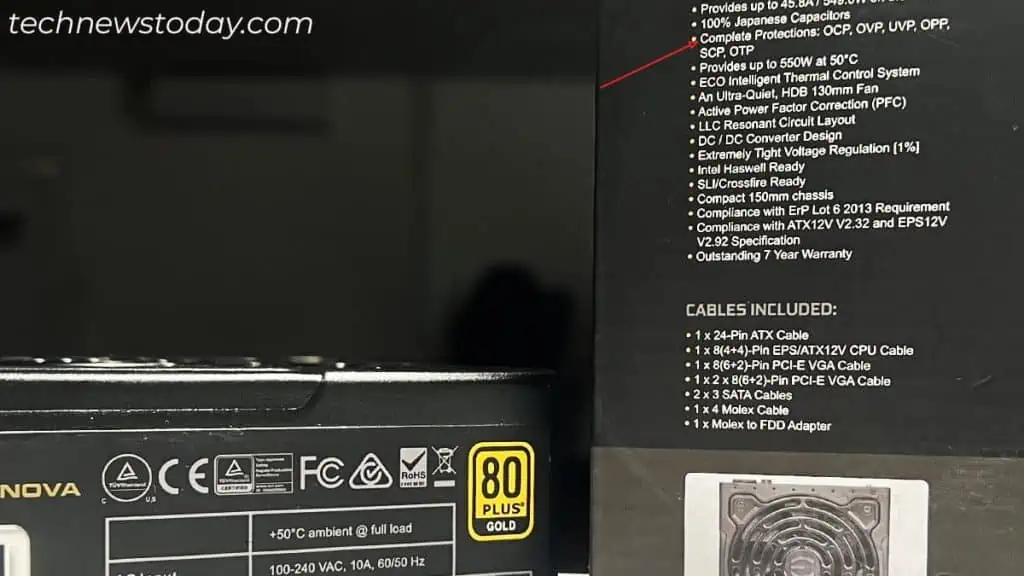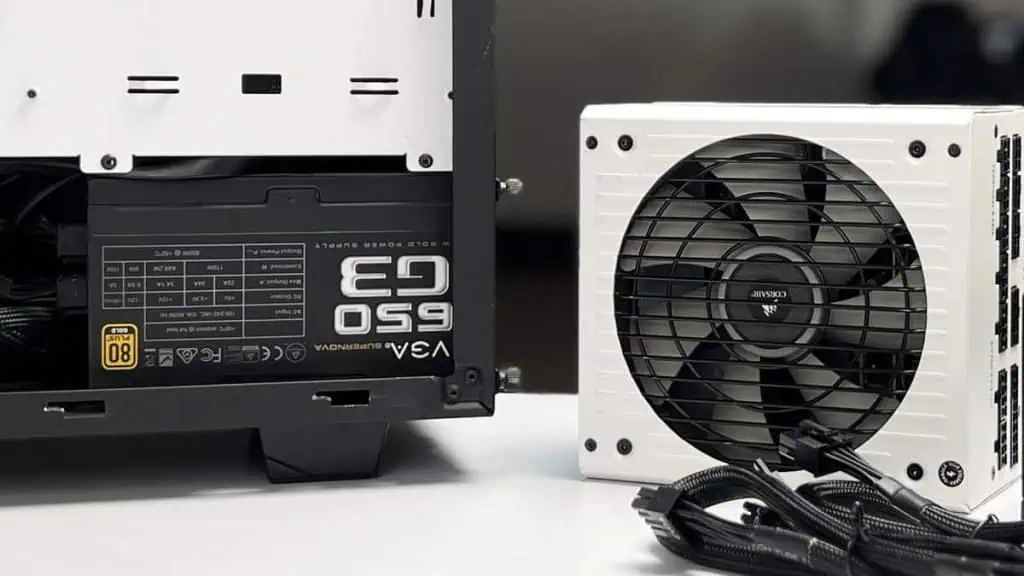The signs of a PSU overload depend on the amount of load it is on.
- Load is higher than PSU wattage — system restarts or shuts down unexpectedly.
- Load nears or equals PSU wattage — overheating with abnormal noises.
Besides these, you might also come across blue screen errors or get stuck in boot loops. In rare cases, pushing the PSU too hard could even fry it up.
Let’s look at all the possible signs.
PSU Shuts Down or Restarts Randomly
Modern power supplies are generally equipped with an important safety feature known as OverPowerProtection.
Whenever your system’s power demand exceeds the capacity of the power supply, the OPP triggers and your power supply shuts down.

On the other hand, a PSU lacking the OverPowerProtection feature will cause frequent system restarts and crashes.
These issues are sometimes accompanied by the flashing screen and blue screen errors too.
You might also get stuck in a boot loop if the power requirement is extremely high during the startup.
Still, there won’t be an issue turning on your PC, even with an underpowered PSU.
PSU Overheats and Starts Making Abnormal Noises
Typically the PSU shuts down or restarts when it’s overloaded. But things are different if the system’s power requirement just comes close to or equal to the PSU’s maximum capacity.
As the power supply has to pull out more and more power to meet the system’s demand, the efficiency of a PSU gradually decreases.
That is to say, the power wastage gets higher and results in overheating.
To cool it down, the PSU fans start spinning at a higher speed. If you have quieter rooms, you can hear a buzzing sound coming out of your PSU.
And in extreme cases of overloading, it might even start making clicking noises. These signs are telling you that your PSU is under stress.
You Get a Burning Smell From Your PSU
Getting a burning smell from a power supply is a nightmare for any PC user.
While a decent PSU from a reliable brand is likely to have fail-safe mechanisms, such as the OPP feature or a fuse/dedicated circuit, to prevent damage during overload, cheaper and low-quality PSUs lack these safety measures.
They keep supplying power to your system going beyond their rated capacity. And when this happens, the electronic components inside the PSU start to heat up.
This not only causes a burning smell but also increases the risk of PSU getting damaged or frying.
As the burning smell points towards a hazardous situation that could even lead to the entire system exploding, you should immediately pull out the PSU’s power cord to be on the safe side.

